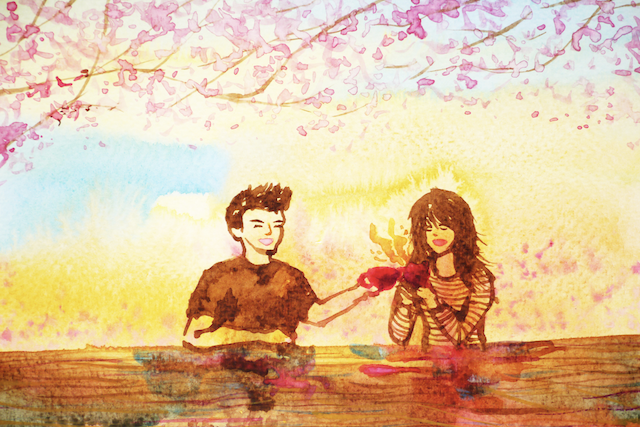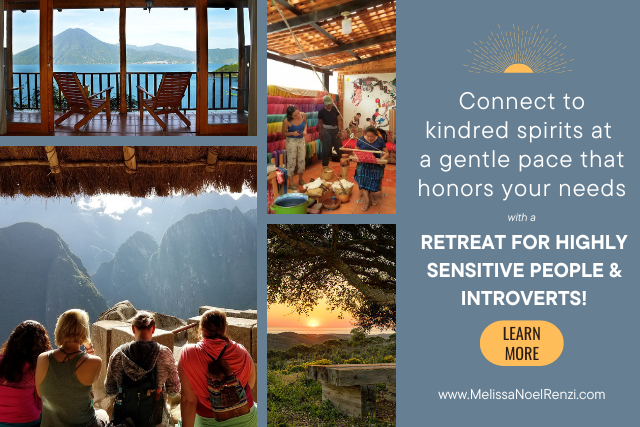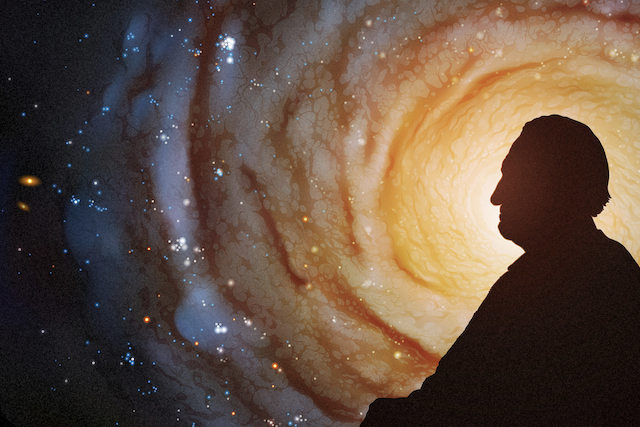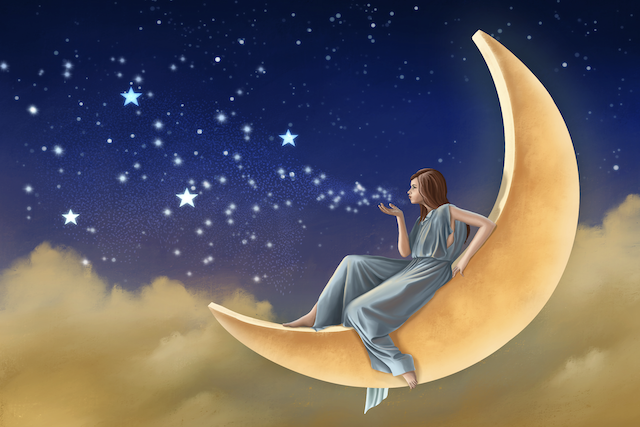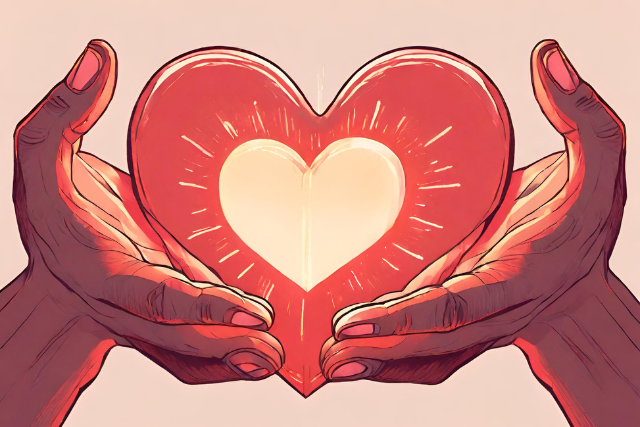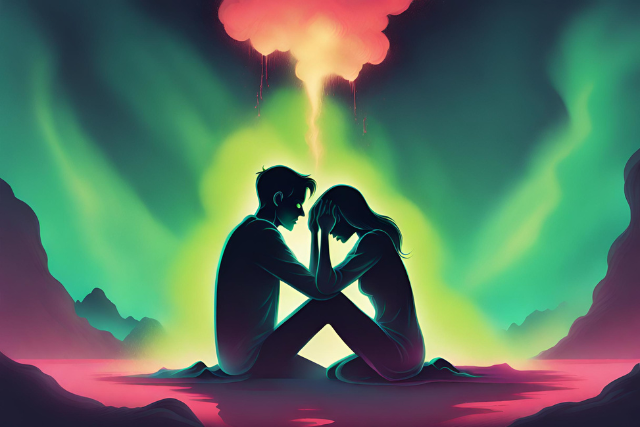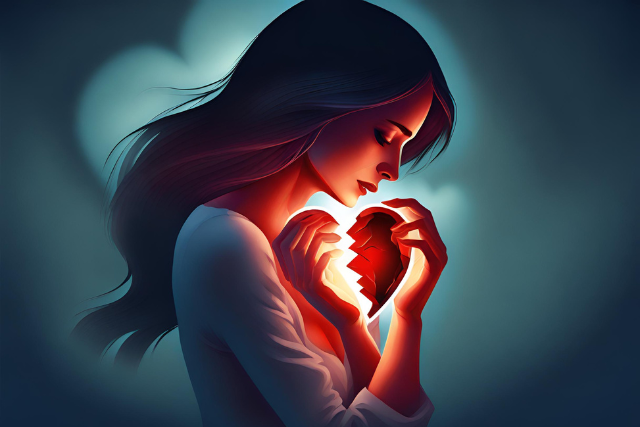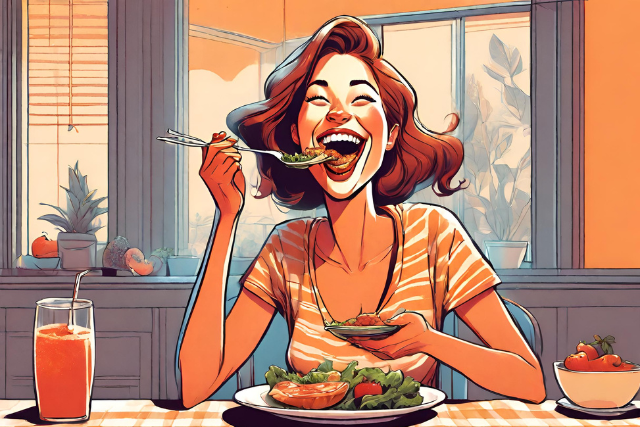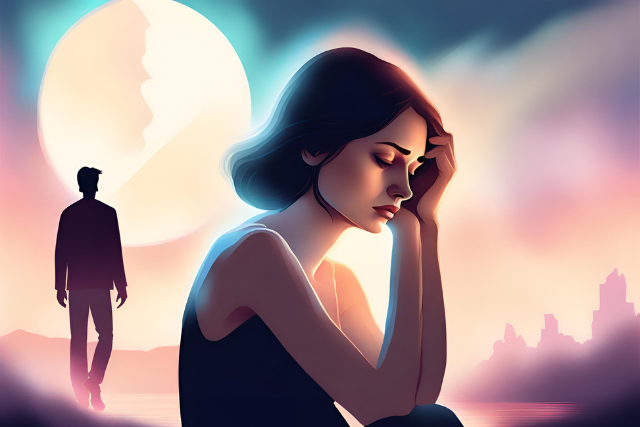
“You can ignore reality, but you can’t ignore the consequences of ignoring reality.” ~Ayn Rand
The first person who introduced me to personal development was my ex. He once said, “It’s like you’re already doing some of these things.”
What a compliment, right? Being a high-level person on the path of constant evolution, self-revolution, always changing and growing. Who wouldn’t want to be that?
Beyond the compliments, I also felt a kinship with many personal growth concepts because they reminded me of some aspects of psychology and philosophy. If I could watch Seligman’s TED talk about positive psychology, why couldn’t I listen to a Tony Robbins lecture? It didn’t seem like a huge gap.
The books filled my thoughts with wisdom and magic. The audios filled my grocery store trips and bus journeys with fiery motivation. In so many personal development gurus, I felt I had real friends who truly understood me.
Self-help, and my ex for that matter, caught me at a sensitive time in my life. I had recently hit rock bottom and decided to change my life. I quit drugs, clubs, and smoking. I stopped pathologically lying and hurting myself for attention.
I wanted to be alert and lucid. I wanted to explore and reach my potential.
One thing that empowered me about personal development was getting rid of the victim mentality and shedding my traumatic stories. I didn’t have to carry the past around the way I did. What was the point? It just made me miserable and regretful and vengeful, never leading to anything productive.
At first, the idea of taking responsibility for my destiny felt like a tough pill to swallow. I was supposed to take responsibility for the abuse I’d endured in various family and romantic relationships? But when I examined the situations closer, I could see that I had a side in co-creating those dynamics. I wasn’t simply a victim of what people were doing to me. I was constantly triggering their actions and reacting to them. I was part of a cycle.
What was at first difficult evolved over time into a new approach to life. All I had to do was find a way to hold myself responsible for my emotions, for my life, for my behaviors. No matter how other people acted, I always had a choice.
I carried this empowerment with me day to day; it helped in many ways. It helped me quit a day job I disliked. It helped me take charge of my career. It helped me let go of being annoyed and held back by the toxic actions of grouchy cashiers and judgmental family members. But taking responsibility for my part in everything started harming my life long before I recognized what was happening.
I carried my victimless self-empowerment to the street corner where my ex drunkenly yelled at me in public, calling me all kinds of names, as I escorted him into a cab. I carried it to his house where he threw coat hooks at my face and cussed at me before passing out in the bed. I carried it the night I woke up to him vomiting all over the bed after another blackout-drunk night. I carried it through the years I lent him thousands of dollars to gamble away on affiliate marketing while paying my bills and our bills, cooking, cleaning, and providing him with unlimited emotional support, day in and day out.
Back then, I had a blog. I wrote about finding self-love through obstacles in my work, reaching self-understanding in difficult encounters with yoga teachers and friends, learning from negative reviews, and so on. I didn’t blog about my ex’s alcoholism or verbal abuse. It felt like I was being respectful. If I was going through a hard time—which is how he framed it every time I told him I wanted out—I’d want the same thing.
He kept me addicted to promises of a future where he’d get better. Sunk-cost bias is a real thing. He would cite Elon Musk’s first wife and how she was there for all the awful things and never got to enjoy his success. He wouldn’t want that to happen to me: to see him at his worst, support him through it, and then not get to enjoy his best. At the time, these justifications made perfect sense.
Personal development taught me to lose myself in the service of others. It felt right to give to him as unconditionally as possible. Most of the time, I honestly felt like a good person. When he was spewing insults in my face as I remained nonreactive, I felt like I was holding space. That’s what holding space is, right?
The trouble is that when someone yells and screams while drunk, they’re not safe, no matter what kind of space you create for them. By the next morning, all progress is lost. This is something I could see happening, but I denied it. I learned to find tiny shreds of growth and hold onto those as proof that I should stay.
Taking responsibility for my part wasn’t the only thing keeping me there. It was also the stories about how I’d drawn this situation upon myself.
Sometimes, I’d bring up that he was a completely different person when I first met him: patient, kind, loving, and curious about exploring my personality, my body, my views. He’d claim the way he was at the beginning was unsustainable. How could I have expected anything else?
When we met, I was in the middle of healing sexual assault trauma. When he and I would get close to being intimate, I would sometimes freeze up and turn away. He once said this rejection was difficult for him and unsustainable.
The first time we had sex felt like a violation. The moment I realized what happened, I felt like running away, but I didn’t. After all, I’d had a few drinks and wasn’t on my guard. Besides, I already had triggers about this kind of thing. How could I blame him without also blaming myself?
The first time he yelled at me, I sat in front of my mirror, crying, looked myself in the eyes, and said, “If he did it once, he’ll do it again. You know that. Run. Go. Now.” But I didn’t. After all, I’d hurt people I cared about when I was at my worst. I changed. How could I deny him the opportunity to do the same?
I filled up private journals with angry words. Then, I burned them. I thought: Isn’t this what any evolved person would do? Holding onto past traumas and breeding rageful narratives seemed like unhelpful patterns. I reframed my bypassing as patience and kindness and, worst of all, unconditional love.
Anger, it turned out too many years later, was a useful signal I kept ignoring. This felt strange to discover. How could I have missed it? After all, personal development is crawling with ideas about decoding your emotions, honoring yourself, and respecting boundaries. For a few years after I got the courage to leave, I kept asking myself: How could I have been so intent on practicing self-awareness while ignoring the most blatant issues in my life?
Ah, but I hadn’t been ignoring them. I was experiencing excruciating chronic pain symptoms and explaining them away with physical causes. Too long after leaving my ex, I began to understand how these unaddressed issues had begun as dissociative symptoms in response to violation. I also realized how much worse these symptoms became from living for seven years with a person whose presence felt like a violation. How could I have stayed in that environment daily while also daily practicing (and, embarrassingly, also teaching people about) the art of self-love?
It took me years of soul-searching and decluttering and truth-speaking and running around in circles trying to heal the physical and emotional symptoms of feeling chronically unsafe to even begin to understand the answer. It’s simple: There’s a lot of wisdom out there, and there are many contradictory wise messages. We hear what we want to hear.
I do believe that personal development can be used to truly improve a life, to help people reach their highest potential. I have also experienced first-hand how we can use it to keep ourselves in toxic situations. It’s not like self-help is to blame for me staying with him, but it didn’t help me escape either. It’s not information that helps us at the end of the day. It’s courage. It’s honesty. It’s community.
Unfortunately, community is something I didn’t have when I began realizing all these things. I thought I did. I thought I had many friends who were deeply into self-healing and self-love and emotional authenticity. But when I started to get real about the things that were affecting me, like sexual assault and repressed rage and the war back home and my indigenous roots and the predators inside the “conscious community,” I felt more and more alone. After years of supposedly inspired living, I had no real friends to turn to when things got rough.
With all the advice columns and how-to articles and 10-step lists, somehow personal development had left out the most important part: humanity. Learning to be ourselves alone and with each other.
Again, it’s one of those things that we only see when we want to see them. As Lao Tzu said, “The greatest wisdom seems childish.”
I read so many books and listened to so many audiobooks searching for answers about how to become the best version of myself, but the opportunities, the lessons, and most importantly, the answers had been there in front of my face all along. I just had to be brave enough and honest enough with myself to see what was already there.
![]()
About Vironika Tugaleva
Vironika Tugaleva (also known as Vironika Wilde) is a poet, spoken word artist, activist, and award-winning author. Vironika believes in the medicinal power of honest words and tough truths. When Vironika isn't writing, she loves stargazing, singing, and eating pickles (sometimes, all at once). You’re welcome to follow her on Instagram (@vironikawilde), check out her latest book, Love & Gaslight, or get a free preview of The Art of Talking to Yourself.
Get in the conversation! Click here to leave a comment on the site.
from Tiny Buddha https://ift.tt/pL6tVSU

